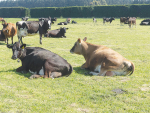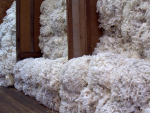KILLING bobby calves with hammer blows to their heads should send shivers down the spine of every Kiwi dairy farmer.
The days of ‘she’ll be right’ are gone, as are the days when ‘what happens on the farm stays on the farm’.
And perceptions held by onlookers are as important as ever. Vast numbers of people now own a camera-cellphone, and social media can spread misinformation at light speed.
Trying to educate the public about farming practices is by-and-large a lost cause because townies, especially in Auckland and Wellington, dwell in another universe.
It may be that farmers now must try to think like an imagined Aucklander -- or a Berliner -- to try to second-guess their perceptions of how farming is and how it ought to be.
The citizens of Grey Lynn and Karori need to know that farmers see no great sport in bashing their baby charges with hammers, nor, for that matter, having their vets induce calves. We acknowledge the public, with the animal ethicists, want animals killed ‘nicely’. (Sentient beings are to be euthanased humanely, not bashed to death.)
New Zealand agribusiness is vulnerable because it pitches its products to the affluent and educated – the high end of the market. The reward is better prices, the requirement is higher standards.
Farming leaders need to get off the fence and lead from the front, personally showing their farms as examples of best practice in animal welfare. One-time airline owner Sir Reg Ansett once said “the speed of the boss is the speed of the team”. Right!
Dairy farmers need to be one step ahead of the consumer and offer new value propositions that show they are leaders not followers of best practice.


















